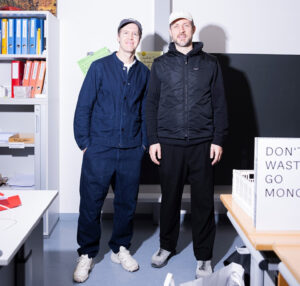The Hershey Company has entered into an agreement to acquire LesserEvil, a Connecticut-based health-forward snack company, in a transaction valued at approximately $750 million. The move is part of Hershey’s broader strategy to diversify its offerings beyond chocolate and candy and strengthen its presence in the fast-growing better-for-you snacks market.
LesserEvil’s Background
Founded in 2005 and revitalized under CEO Charles Coristine in 2011, LesserEvil has grown into a leading brand in the organic snack space. The company’s signature products include organic popcorn, grain-based snacks like “Space Balls” and “Moonions,” and puffed snacks made with clean-label ingredients such as avocado oil, coconut oil, and Himalayan pink salt. With a production facility in Danbury, Connecticut, LesserEvil has become a recognizable name on the shelves of Whole Foods, Target, and other major retailers.
Hershey’s Growth Strategy
Hershey’s CEO Michele Buck has made it clear over the past few years that the company sees its future not just in sweets but in the broader snacking category. The company has steadily built a portfolio of salty and savory brands, including its 2018 acquisition of Amplify Snack Brands (home to SkinnyPop), as well as purchases of Dot’s Homestyle Pretzels and Pirate’s Booty. The LesserEvil deal is Hershey’s most significant move yet in health-oriented snacks.
“This acquisition will bring us a step closer to our vision of becoming a leading snacking powerhouse,” said Buck in a statement. “LesserEvil gives us a dynamic, modern platform that resonates with younger, health-conscious consumers and complements our existing portfolio.”
Strategic Fit
The deal reflects changing consumer preferences. Increasingly, consumers—especially younger demographics—are turning to clean-label, minimally processed snacks with recognizable ingredients. LesserEvil’s commitment to organic, non-GMO, and sustainable sourcing aligns well with this trend and gives Hershey a strong foothold in the premium snack category.
Industry analysts have noted that the price tag suggests Hershey sees LesserEvil as more than just another snack company. It likely views it as a scalable platform to expand into adjacent better-for-you categories, such as plant-based snacks and functional foods.
Financial Terms and Structure
The $750 million valuation includes an upfront cash payment, with provisions for additional performance-based payments if LesserEvil hits certain revenue or growth targets. Hershey will fund the acquisition through a mix of cash on hand and debt. The deal is subject to regulatory review and is expected to close by the end of the year.
LesserEvil Leadership and Operations
LesserEvil’s CEO Charles Coristine is expected to remain in a leadership role post-acquisition, overseeing brand direction and integration. “We’re excited to join forces with Hershey,” Coristine said. “This partnership will allow us to accelerate our mission to make healthy snacking accessible to more people while maintaining our values.”
LesserEvil will continue to operate out of its Danbury headquarters, which includes its manufacturing and R&D operations. Hershey plans to support the brand’s existing distribution while also leveraging its own scale to expand LesserEvil’s reach nationally and internationally.
Market Implications
With this deal, Hershey is doubling down on a segment that’s been rapidly growing. According to data from IRI, the better-for-you snack market in the U.S. was worth over $30 billion in 2024, with annual growth rates outpacing traditional salty snacks and candy.
“Consumers are increasingly looking for guilt-free indulgence—snacks that feel good and do good,” said one analyst. “Hershey’s move shows it wants to be where the growth is.”
Challenges and Integration
Despite the synergy, Hershey will need to navigate the complexities of integrating a fast-moving, values-driven startup into a large publicly traded enterprise. LesserEvil has built a loyal following by embracing transparency, sustainability, and a mission-first philosophy. Maintaining that authenticity under the Hershey umbrella will be critical to retaining its customer base.
Moreover, the acquisition comes at a time when input costs are rising and consumer wallets are tightening amid inflationary pressures. Successfully scaling LesserEvil without diluting its brand identity will require strategic finesse.
Industry Reaction
The deal has drawn interest across the food and beverage landscape. Competitors like PepsiCo, Mondelez, and General Mills have all made plays in the natural and organic snacks space. Analysts say the acquisition signals Hershey’s seriousness about competing in this space long-term.
Some investors have raised concerns about the price tag, questioning whether LesserEvil can generate enough revenue growth to justify the valuation. But others believe Hershey is positioning itself wisely for the future, betting on consumer trends that show no signs of reversing.
Impression
Hershey’s acquisition of LesserEvil represents more than just a brand buy—it’s a strategic bet on the future of snacking. As consumer preferences continue to shift toward wellness, sustainability, and clean-label products, Hershey appears poised to meet that demand head-on.
With its track record of successful integrations, its deep distribution network, and now, a rising star in the better-for-you segment, Hershey is aiming to redefine what its brand—and the snacking landscape—looks like in the decade ahead.
No comments yet.








